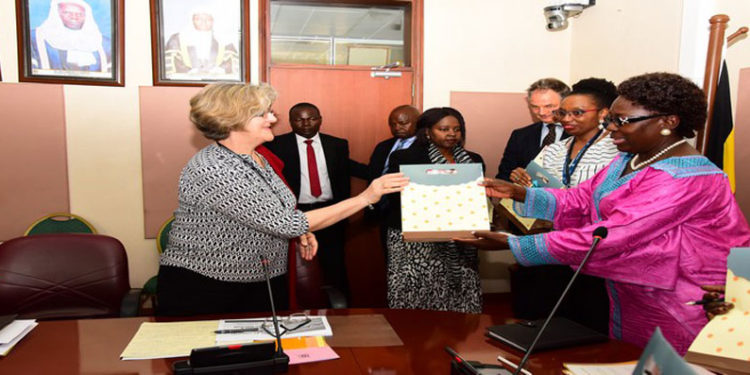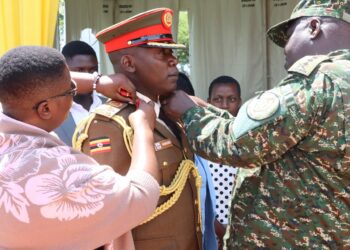The Speaker of Parliament, Rebecca Kadaga has appealed to UN agencies to support the operations of the National Women’s Council to enable it reach women at grassroots level.
Kadaga said she was concerned that although women council leaders were elected countrywide, they remain largely redundant.
“When I go for meetings of women councils, many ask that, ‘Madam Speaker: we were elected, but what can we do?’,” Kadaga said.
Kadaga said this while meeting representatives from the United Nations Population Fund (UNFPA), UN Women, United Nations Children’s Fund (UNICEF), United Nations Development Programme (UNDP) and the National Women Council at Parliament on Thursday, 12 March 2020.
The National Women’s Council was established in 1993 by an Act of Parliament, with a mandate to bring together all women in Uganda for social, economic and political empowerment.
Kadaga said the council with its representation from village to the national level has potential to make a turn around on issues of women economic empowerment and their participation in developing communities.
The Council’s Executive Secretary, Collin Mwijukye said that with 356,000 women leaders spread across the country, the council survives on limited resources of less than Shs1 billion per annum to run operations and grass root programmes.
“This leaves us constrained to implement visible programmes much as we are happy that many of our initiatives have been taken up by our partners,” Mwijukye said.
The Council Chairperson, Farida Kibowa interested the UN agencies in its new initiative termed ‘the 15 house hold model’ where five council leaders are attached to monitor 15 households in a village.
“Through this system, the council shall reach out to households, small hold farmers, domestic workers, landless women, and school girls and women entrepreneurs,” Kibowa said.
The UNFPA Representative in Uganda, Alain Sibenaler said UN was in a process of drafting new cooperation framework for the next five years and added that some of the priority areas of the council such as child health and adolescent health are core to certain UN agencies.
The UN Women, Deputy Country Representative Adekemi Ndieli, advised that women councils can take advantage of some of the UN programmes already running.
“For example the spotlight programme which was launched on Sunday [8 March 2020] benefits women movements; we could leverage on its resources and connections as we see how we shall work together,” Ndieli said.
Do you have a story in your community or an opinion to share with us: Email us at editorial@watchdoguganda.com













